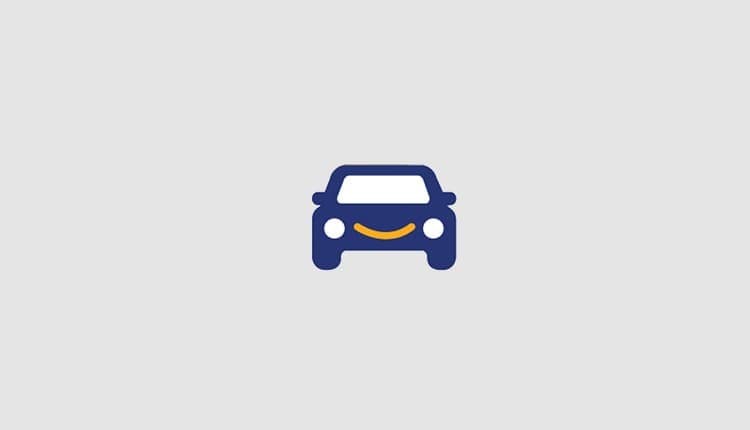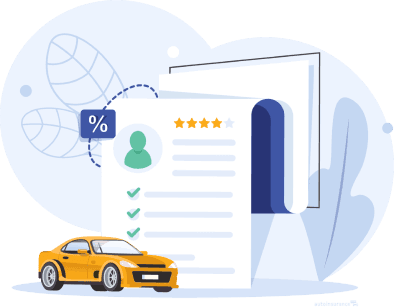
How Much Does Car Insurance Go Up After An Accident?
On average, car insurance premiums increase by 42 percent after an accident.
Get quotes from providers in your area

No one expects to cause an accident when they get behind the wheel of a vehicle, but it’s still a possibility—even for the safest drivers. According to the National Highway Traffic Safety Administration, 8,564,675 passenger vehicles were involved in police-reported traffic crashes in 2022 (the most recent data available).1 One consequence of an at-fault accident is a higher auto insurance premium. On average, you should expect your premium to rise by 42 percent after an at-fault accident.
How Does an Accident Affect Your Insurance Rates?
Auto insurance providers evaluate your risk before providing you with a quote. Driving history is one way to determine how risky you are to insure—when you cause an accident, your insurer will consider you at higher risk of getting into another. This, in turn, costs the company more money. That’s why your rate will increase after an at-fault accident.2
We found that your auto insurance rate will go up an average of $872 after an accident.
| Company | Average annual full coverage premium before an accident | Average annual full coverage premium after an at-fault accident | Average percentage increase |
|---|---|---|---|
| AAA | $2,562 | $3,717 | 45% |
| Allstate | $2,571 | $3,686 | 43% |
| American Family | $1,716 | $2,176 | 27% |
| Auto-Owners | $1,576 | $2,538 | 61% |
| Erie | $1,436 | $1,823 | 27% |
| Farmers | $2,388 | $3,581 | 50% |
| GEICO | $1,405 | $2,269 | 61% |
| Nationwide | $1,603 | $2,418 | 51% |
| Progressive | $1,777 | $2,738 | 54% |
| State Farm | $1,760 | $2,172 | 23% |
| Travelers | $1,464 | $2,013 | 38% |
| USAA | $1,274 | $1,835 | 44% |
FYI:
Driving record is just one of many factors insurance companies account for when determining risk. Each provider uses a different algorithm that may calculate the number of at-fault accidents, tickets, and DUIs on your record as well as aggressive acceleration, distracted driving, harsh braking, and other bad habits.
How Much Will Your Auto Insurance Premium Increase After an Accident?
The following factors will determine how much your auto insurance premium increases after an accident:
- How serious the accident was: Typically, a more serious accident will result in a greater increase.
- Who caused the accident: Expect your premium to increase if you were the person at fault for the accident.
- Where you live: Each state has different laws governing how an insurance company can set rates and how long an accident remains on your driving record.
- Your insurance company: Each insurance company has a different risk calculation formula, which is why shopping around after an accident can be beneficial.3
IMPORTANT:
It can be tempting not to report an accident for fear of your rates increasing. However, it’s important to call your insurance company after an accident, as concealing it could result in denial of coverage.
How Long Does an Accident Affect Your Rates?
An accident could affect your rates for three to five years depending on your provider and state. In New York, for example, accidents and most traffic convictions remain on your record until the end of the year the accident occurred plus three more years.
Accidents don’t stay on your record as long as more serious violations. For example, in New York, DUI convictions stay on your record for 15 years from the date of conviction.4
How Much Will Your Auto Insurance Premium Increase After an Accident You Didn’t Cause?
How much your auto insurance premium increases after an accident you didn’t cause varies from state to state. This is because states have different fault systems. States with at-fault laws require the person at-fault to pay for the other party’s medical expenses and allow the victim to sue for economic and non-economic damages. This type of insurance is also called liability insurance.
States also have different negligence laws that affect your compensation after an accident. States with comparative negligence laws allow partial fault to apply to both parties, meaning you can split the costs. Contributory negligence states do not allow you to receive compensation if you have any negligence in an accident.
Your auto insurance increases after an accident because your provider deems you more expensive to insure and more likely to get into another accident. How much your auto insurance increases after an accident you didn’t cause depends partly on these fault and negligence laws, so look into your state laws.
Accident forgiveness is another option if you’re risk-averse and wish for a safety net if you get into an accident. The following auto insurance providers offer accident forgiveness, an optional coverage that prevents your insurance rate from going up after an accident:
- American Family
- Amica (if you’ve had no accidents within the past three years)
- Clearcover
- Direct Auto
- Erie
- Farmers
- GEICO
- Infinity
- Liberty Mutual
- Mercury
- Nationwide
- Plymouth Rock (if you’ve had no claims in the past five years and live in Connecticut, New Jersey, or Pennsylvania)
If you qualify and add this coverage to your policy, your premium won’t increase after your first accident.
KEEP IN MIND:
Accident forgiveness is not available from every insurance company, and it is not available for California residents.
How Can You Lower Your Rates After an Accident?
You may not control the increase in your premium that comes after an accident, but here are some factors you can control:
- Shop around. Since each insurance company has a different risk calculation, you can find a smaller increase through a different insurer. You may have luck with State Farm, Erie, Dairyland, or American Family.
- Adjust your policy. You may lower your auto insurance rate by removing certain coverages and raising your deductible. Of course, you will pay more out of pocket if you need to file another claim. Some coverages, like accident forgiveness, may be worth the extra cost for peace of mind.
- Check with your insurer for any discounts. There may be further discounts that you are eligible for that your insurer did not apply to your policy initially—check to see if any will protect you from further rate increases.
- Improve your credit. Improving your credit score is a long-term process, but it can save you hundreds or even thousands on your rates in the long run. However, four states prevent insurance companies from using credit scores in their pricing models: California, Hawaii, Massachusetts, and Michigan.
- Take a defensive driving course. Depending on your insurer, if you show you are committed to driving safely in the future by taking a defensive driving course, this may change the calculation of how risky a driver you are. Look for this discount with Amica, Clearcover, Dairyland, Farmers, Gainsco, GEICO, Good2Go, Infinity, Kemper, Mercury, Nationwide, State Farm, and The General.
- Type of vehicle: Cars with limited safety features and a higher risk for theft will result in higher rates. If you drive a safer car, your rates will be lower because the risk of damage and injury is lower.
- Annual mileage: The more miles you drive, the more likely you get into an accident.
What if You Have More Than One Accident on Your Record?
Drivers who are much higher risk and have caused more than one accident still have options for auto insurance. The standard auto insurers may not renew your policy, depending on your risk profile, but there are other ways to find coverage.
- Check with smaller insurers. Your first step is to check with smaller insurers. Smaller companies such as Bristol West and the Farm Bureau are more likely to offer nonstandard insurance for high-risk drivers.
- Look at insurers that specialize in high-risk drivers. While more expensive than standard insurers, non-standard or high-risk providers like Direct Auto specialize in insuring high-risk drivers and drivers with poor driving records.
- Use your state’s program. For very high-risk drivers, you may need to find insurance through your state’s assigned risk plan.5 Most likely, your rates will be higher than if you didn’t need to purchase insurance through this plan. Additionally, your coverage may be minimal, but you will still have coverage.
Recap
Long story short: if you cause an auto accident, you can expect your premium to rise. Work with your insurer to adjust your policy, find discounts to apply to your policy, or shop around with different insurers to reduce the impact on your auto insurance premium. Following these steps will make sure that, after an accident, you’re getting the best coverage you can for the lowest price.
Citations
2020 State Traffic Data. National Highway Traffic Safety Administration. (2022, Sep).
https://crashstats.nhtsa.dot.gov/Api/Public/ViewPublication/813368.pdfDo auto insurance premiums go up after a claim? III. (2022).
https://www.iii.org/article/if-i-file-claim-will-my-premium-goHow is fault determined after a car accident? Allstate. (2020, May).
https://www.allstate.com/resources/car-insurance/determining-fault-after-car-accidentGet My Own Driving Record (Abstract). New York State Department of Motor Vehicles. (2024).
https://dmv.ny.gov/records/get-my-own-driving-record-abstractPlan Sites. AIPSO. (2022).
https://www.aipso.com/Plan-Sites

